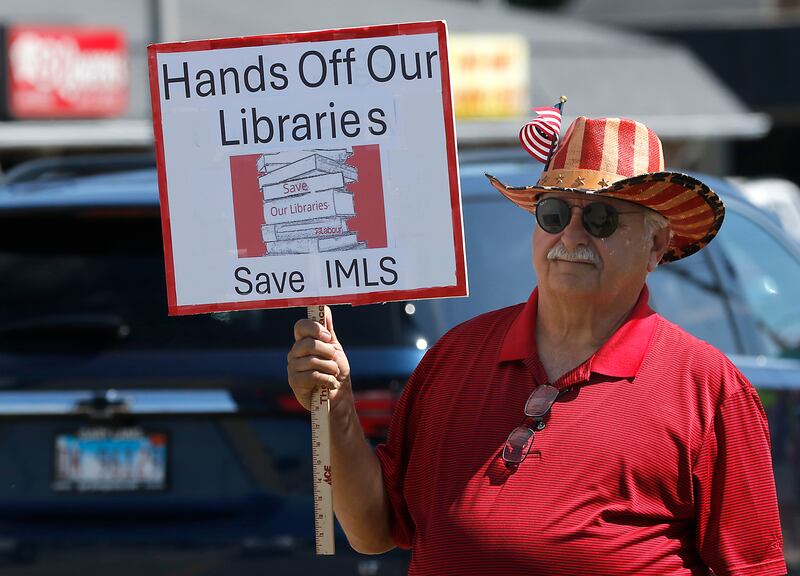McHenry County libraries were awarded nearly $383,000 in annual state grants provided by the Illinois Secretary of State’s office amid looming possible federal cuts to libraries.
The Illinois Secretary of State’s office awarded nearly $20 million in grant funding to libraries across the state this year for books, staffing and capital upgrades, according to a news release from the state agency.
Secretary of State Alexi Giannoulias, who is also the state librarian, announced the annual grant fundings this month. Nearly $358,000 in “per-capita” grants went to McHenry County libraries, which support library resources and services like books, e-books, online resources, personnel and public programming, according to the release. The funding amounts are based on the population of each community.
The Algonquin Area Public Library District and McHenry Public Library District both received over $60,000, while Crystal Lake was granted over $59,000 and Cary Area Public Library District was awarded over $40,000.
“A library is more than just a building with books, it’s the epicenter of opportunity, discovery and community connection,” Giannoulias, a Democrat, said in the release. “From early childhood education to workforce development, libraries empower individuals of all ages and backgrounds. Properly funding our libraries will ensure that they are able to continue generating an outsized impact in communities across Illinois.”
The Woodstock Public Library received the most money this year among McHenry County-area public libraries because of an additional $25,000 remodeling grant on top of a nearly $38,000 per-capita grant. Woodstock Public Library Director Nick Weber said the renovations will go towards dearly needed technological upgrades to their meeting rooms.
“It’s just not up to 21st-century standards at this point,” he said.
The library aims to equip the rooms with wireless connectivity for hearing devices and to upgrade devices to be compatible with HDMI cables so access becomes easier for patrons, Weber said. This is the first time the Woodstock library is receiving the remodeling grant, Weber said, but the library relies on the per-capita grant each year for the increasing costs of digital collections.
The annual grants come at a precarious time for libraries, as potential federal cuts to the Institute of Museum and Library Services loom.
On June 6, a federal judge gave the administration of President Donald Trump permission to proceed with dismantling the Institute of Museum and Library Services, according to published reports.
An executive order Trump issued in March as part of his wide-ranging efforts to reduce government bureaucracy identified the institute as one of the federal entities he’d deemed “unnecessary,” along with the the US Interagency Council on Homelessness, the Woodrow Wilson International Center for Scholars in the Smithsonian Institution and the Minority Business Development Agency.
“We’re doing things differently in Illinois,” Giannoulias said in the release. “Instead of cutting funding that would limit learning and prove harmful to Illinois communities, we’re fighting for Illinoisans to ensure they have the funding and resources to learn, grow and explore today and in the future.”
Last month, nearly 100 people rallied outside the McHenry Public Library with organizers Indivisible McHenry County to protest Trump’s efforts to end the federal government agency while showing support for all libraries.
Illinois receives nearly $6 million annually from the IMLS – the sixth-highest amount in the country, according to the state secretary news release. A large portion of the funds go to the Illinois Heartland Library System and the Reaching Across Illinois Library System, or RAILS, under the System Area & Per Capita Grant Program, according to the Illinois Library Association. RAILS is an agency that assists over 4,000 libraries across the state by providing interlibrary delivery services.
“If the state loses a chunk or all of the funding they get from the federal government with the IMLS money, hopefully it doesn’t go away completely, but it certainly gets to be less robust than it is now, and potentially it doesn’t run as often or it doesn’t run as far,” Weber said. “If some of that stuff sticks, or if they do make significant cuts to IMLS, it will have an effect on all libraries. It will hit the rural libraries harder than the suburban libraries, but it will hit everybody.”
The full list of libraries and award amounts can be found here: Bit.ly/ILlibrarygrants.
